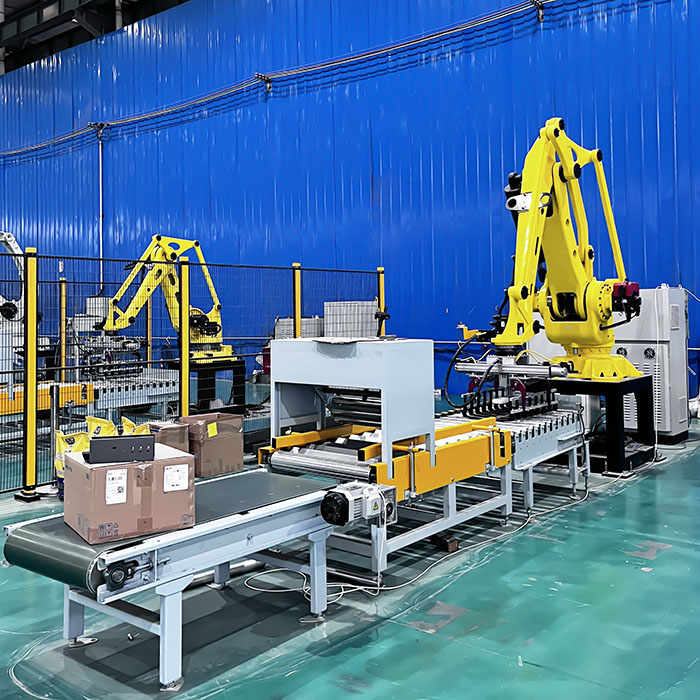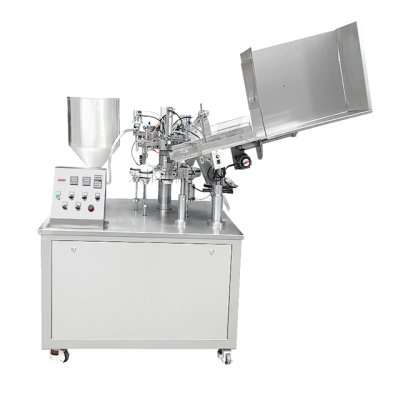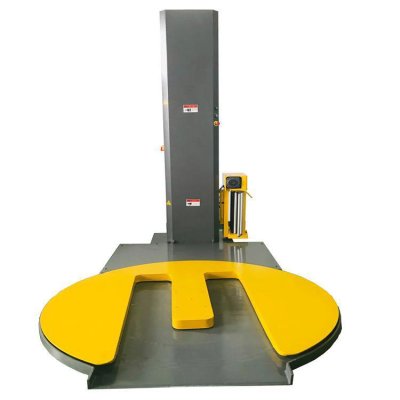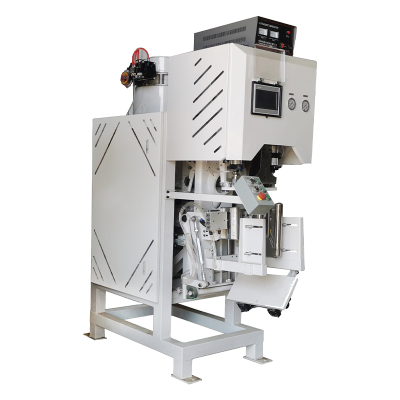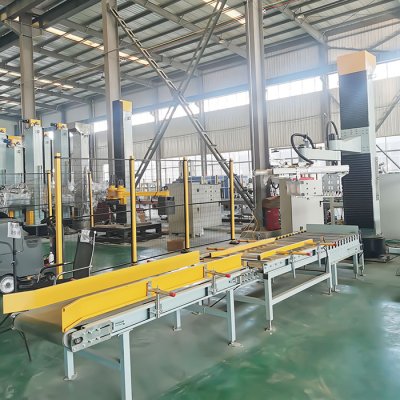food palletizer
Palletizing in the food industry involves a variety of methods. Based on product characteristics, packaging, and logistics requirements, Bremetz engineers have designed superior solutions for the following types of palletizing.
1. Palletizing Cased Food
Applications: Beverage cartons, snack cartons, canned goods, etc.
Features: Regular shape, easy for mechanical handling
Packet Type: Typically staggered or column stacking
2. Palletizing Baggage
Applications: Flour, sugar, pet food, etc.
Features: Flexible packaging, requiring special grippers
Packet Type: Rotating staggered or brick-laying styles are commonly used
3. Palletizing Drum/Canned Food
Applications: Edible oil drums, milk powder cans, etc.
Features: Cylindrical packaging, requiring anti-rolling design
Packet Type: Typically honeycomb arrangement
4. Palletizing Palletized Food
Applications: Pastries, frozen foods, etc.
Features: Partially packaged, requiring overall handling
Packet Type: Direct stacking or with partitions
Palletizing in the food industry varies greatly. Based on product characteristics, packaging, and logistics requirements, Bremetz engineers have designed excellent solutions for the following types of palletizing.
I. By Packaging Type
1. Palletizing Cased Food
Applications: Beverage cartons, snack cartons, canned goods, etc.
Features: Regular shape, easy for mechanical handling
Packet Type: Typically staggered or column stacking
2. Palletizing Baggaged Food
Applications: Flour, sugar, pet food, etc.
Features: Flexible packaging, requires special grippers
Packet Type: Commonly rotated staggered or brick-laying
3. Palletizing Drum/Canned Food
Applications: Cooking oil drums, milk powder cans, etc.
Features: Cylindrical packaging, requires anti-rolling design
Packet Type: Typically honeycomb arrangement
4. Palletizing Palletized Food
Applications: Pastries, frozen foods, etc.
Features: Partially packaged, requires whole-unit handling
Packet Type: Direct stacking or with partitions
II. By Stacking Method
1. Block Palletizing (Column Pallet): Aligned stacking of boxes per layer. Less stable, but high space efficiency. Suitable for lightweight, regular packaging
2. Staggered Palletizing (Brickwork)
Boxes between adjacent layers are rotated 90°.
This provides excellent stability and resistance to tilting.
Suitable for heavier products or long-distance transport.
3. Rotary Palletizing
Boxes on each layer rotate at a fixed angle, creating a spiral effect.
This is aesthetically pleasing and offers moderate stability.
4. Honeycomb Palletizing
Round packages are arranged in a hexagonal pattern.
This maximizes space utilization.
Suitable for canned beverages, etc.
III. By Level of Automation
1. Fully Automatic Palletizing
Robots automatically identify, grasp, and stack.
This is high-speed and efficient, suitable for large-scale production.
2. Semi-Automatic Palletizing
Manually assisted positioning and mechanical stacking.
This has a lower investment and is suitable for small and medium-sized operations.
3. Manually Assisted Palletizing
Using a palletizer but requiring manual feeding.
This offers high flexibility and is suitable for a wide variety of products.
IV. Specialty Food Palletizing
1. Frozen Food Palletizing
This requires consideration of low-temperature adaptability.
This often uses non-slip trays and special clamps.
2. Fragile Food Palletizing
Eg. egg products, biscuits, etc.
This requires shock absorption and gentle handling.
3. Palletizing irregularly shaped food packages, such as conical and irregular packages, requires a customized end-effector.
4. Palletizing mixed products: Combining different products on the same pallet requires intelligent identification system support.
The selection of food palletizing methods requires comprehensive consideration of product characteristics, transportation conditions, storage space, and cost factors. Modern intelligent palletizing systems designed by bremetz enable automatic switching and optimized combination of various pallet types.

